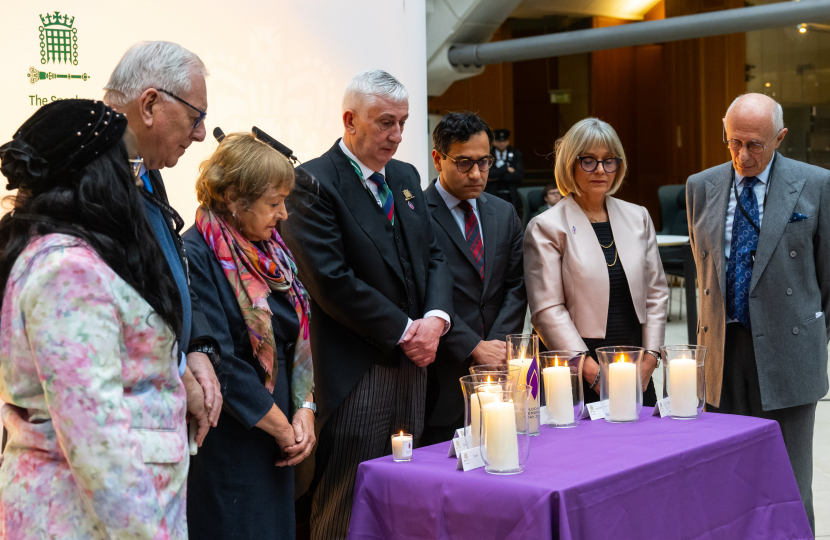
Good news: a new blood test for detecting Alzheimer’s disease could revolutionise diagnosis and care for the condition. I will listen this week to NHS England on their views, concerns and priorities concerning palliative and end-of-life care funding and provision including wider funding for dementia support and care.
At a square table with the Institute of Biomedical Science, I discussed the potential of their medical science in tackling diseases like Alzheimer’s and Parkinson’s. For years I have been an active supporter of the Anthony Nolan Charity and the All-Party Parliamentary Group on Stem Cell Transplantation and Advanced Cellular Therapies who also met this week.
They work to raise awareness about stem cell transplant and gene therapy for people with sickle cell. As an Officer for the All-Party Group on Ethnicity Transplantation and Transfusion, I am acutely aware of how the shortage of donors affects patients with diverse backgrounds.
The Anthony Nolan Charity engages well with schools and colleges. Student groups organise donor sign-up events, fundraise and lead on raising awareness of blood cancer and other blood disorders, with the support and guidance of their teachers.
Adam Ferguson, philosopher and historian of the Scottish Enlightenment, admired courage and loyalty. He thought ‘commercial society’ encourages people to be weak, dishonourable and unconcerned for their community. I think business can be and should be a way to promote self-interest without selfishness. There is good in enterprise, as in charity and public service.
There are potential problems in the allocation system for admissions to schools reported as being introduced at a city along the coast. Parents’ choices should be respected as much as possible. They are a signal to schools; that they recognise success.
In tribute to our local colleges and schools, I welcomed a group of their leaders to Westminster Hall before a tour of the Houses of Parliament. The best-known person to have taught in Worthing is not remembered for her teaching. Emily Wilding Davison, the suffragette, taught at a local school. Note: Davison High School is named for the Reverend William Davison, chaplain of St Paul’s Church, rather than after the suffragette
Emily wanted to avoid the 1911 census; she hid in a broom cupboard in the crypt of Westminster Hall. She was discovered; her name was on the list of those to be expelled. Our schools try to avoid expulsions.
There is greater understanding of special educational needs, including neurodiversity. On Monday I attended a special reception to extend knowledge of neurodiversity and to include those whose behaviour can be challenging.
This week, news arrived that there is another step towards building a SEND school in north-west Durrington. I shared this good news with the Head Teachers and School Leaders present in Parliament last week.
This campaign has had many steps. In a parliamentary answer to me, the Department of Education report they are in discussion with West Sussex County Council. Subject to agreement, the next step is acquiring the site.
Talking to students of politics, I say that most of our activity is cooperative, unreported and aiming at the quiet, undramatic provision of local services. My thanks go to the parents, the local government officers and to ministers who normally get to understand our needs after persistent persuasion.
My tribute to the late Labour MP Sir Tony Lloyd is that more of us should try to earn the words shared across the House this week about him. He did not shout from the rooftops. He worked hard. The legendary observer Andrew Roth wrote he was “well informed, thoughtful and a realistic regionalist and internationalist”.
Tony’s words: “. . the basic morality of politics was instilled in me. I have always thought if not fighting for what’s right and just, then what is politics for?”
Many more members of parliament are like him: less noise, more positive contribution.



